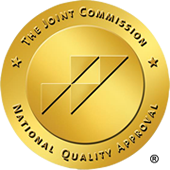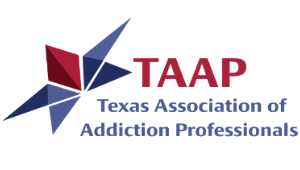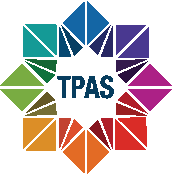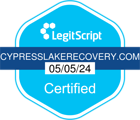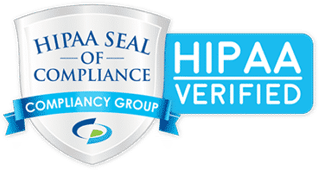Fentanyl Addiction Treatment in Texas
Fentanyl use, whether through prescription or illicit sources, has contributed to a dramatic rise in opioid use disorder and overdose deaths involving fentanyl across the United States. Understanding the risks associated with fentanyl and other opioids is essential for patients, families, and healthcare providers as they navigate pain management, addiction, and recovery.

Is Addiction Impacting Your Life?
Take The First Step To True Healing Today!
Understanding Opioid Use Disorder
This disorder not only affects physical health but is also closely linked to mental health concerns, making comprehensive treatment essential. Medication-assisted treatment (MAT) (which may include medications like methadone or buprenorphine) combined with behavioral therapy has proven highly effective in managing opioid addiction, reducing cravings, and lowering the risk of overdose. By treating both the physical and psychological aspects of opioid use disorder, individuals have a greater chance of achieving lasting recovery.
To understand the seriousness of fentanyl addiction, it’s important to know how it’s used. When opioids are abused, the way in which they’re taken is part of the reason they’re so effective. It’s essential to understand how it impacts the brain and physical body.
Fentanyl is sold as a powder, in slow-release patches, tablets, blotting papers, and as a liquid mixed with heroin. It can be injected, smoked, swallowed, or absorbed on the tongue. These opioids are designed to be absorbed through delicate and permeable mucous membranes and fatty tissues, allowing for rapid action.
Production of fentanyl is done in labs all over the world and is considered highly accessible. Although fentanyl is in the same family as other opioids, including morphine, oxycodone, heroin, hydrocodone, and codeine, there is an increasing issue in the drug-trafficking department that suggests what people are buying from drug dealers is actually fentanyl in disguise. What they believe to be basic prescription drugs or injectable heroin are actually the much more potent fentanyl. Users handle the drug as if it were heroin and don’t realize that they’re not dosing at all correctly.
Fentanyl can quickly suppress the body’s ability to breathe, leading to life-threatening respiratory depression and, in many cases, even death. Common signs of a fentanyl overdose include constricted pupils, clammy skin, and dangerously slowed or stopped breathing.
There is a big problem with street drugs sold to addicts with opioid addiction, because the composition of these pills is not standard across all manufacturers. Because of this unpredictability, using fentanyl test strips can be a valuable harm reduction tool to help detect the presence of fentanyl in street drugs.
The presence of fentanyl in the illicit drug supply (often mixed with heroin or other drugs) has fueled a surge in overdose deaths involving fentanyl. Naloxone, a life-saving opioid antagonist, can reverse the effects of a fentanyl overdose if administered promptly, but the rapid onset of symptoms makes timely intervention critical. Overdose deaths involving fentanyl have reached unprecedented levels, underscoring the urgent need for prevention and public awareness about the risks of opioid use.
If you have experienced the effects of an opioid painkiller, especially in a hospital setting, you can understand why people would use this drug to reduce pain. There are other ways to reduce chronic pain that don’t involve highly addictive drugs. But it can take time to develop a comprehensive pain management plan, and it’s much easier to take a single substance that can directly address pain. Fentanyl is often used for pain relief when few other remedies have proven effective, and was at times considered a miracle drug for people living with chronic body pain.
Discontinuing use of opioids (especially fentanyl) can be incredibly difficult, due to the intense withdrawal experience that comes with these drugs’ ability to address pain within the body directly. Many people who wish to quit opioid use may keep using them to some extent merely to keep withdrawal symptoms manageable.
This is why treatment centers like Cypress Lake Recovery offer medically assisted detox to provide support during withdrawal symptoms. People struggling to detoxify from opioids will receive support and immediate medical support whenever necessary. This helps the people avoid the immediate negative effects of detoxification and not be tempted to return to drug use to feel better.
If you or someone you care for is addicted to opioids like fentanyl, call Cypress Lake Recovery today to learn more about our addiction treatments. We’ll create an addiction treatment plan that will help them stick to the path of recovery while still taking their health conditions into account.
Addiction to fentanyl can start in many different ways. Opioid addiction can sometimes occur after a surgery where opioids are prescribed for healing. People can become addicted to opioids without even realizing it.
This is where a friend or family member may become concerned, especially if they notice any signs and symptoms. Addiction opioids can spiral out of control very quickly, and it’s essential to be there to help if there is suspicion that someone may be becoming addicted to opioids.
Contact Our Admissions Team Today
Side Effects of Fentanyl Use
- Impaired judgement
- Respiration issues
- Respiratory depression
- Breakdown of the nervous system and nerve ending with extended use
- Memory loss
- Loss of motor function
- Nausea and vomiting
- Dizziness
- Loss of appetite
- Heart conditions
- Social withdrawal
- Chronic fatigue
- Fever
- Muscle and chest pain
- Seizures or convulsions
What Does Treatment for Fentanyl Addiction Look Like?
Both types of care typically include medication-assisted treatment, counseling, and behavioral therapies tailored to the individual’s needs. Intake professionals can help patients and families find the right level of care, ensuring access to effective treatment and support services. Choosing between inpatient and outpatient care depends on the severity of the addiction, the presence of other health concerns, and personal circumstances, but both pathways can lead to successful recovery with the right support.

Testimonials
![]()
![]()
![]()
![]()
![]()
Regina
I am so happy that I chose Cypress to begin my recovery. I have suffered for years from depression, anxiety, panic disorder, and PTSD. The programs that are offered here at Cypress have been truly phenomenal in helping me recover. I also appreciated the professional staff that are here on duty 24/7, which helps create a safe environment. Cypress Lake Recovery uses effective “one on one” methods that meet each person’s individual needs because they evaluate and have a better understanding of your personal traumatic experiences. Thanks Sabino, I am truly grateful to you and the Cypress family.
![]()
![]()
![]()
![]()
![]()
J.A.
A beautiful facility! Staff sets the tone and kindness that residents easily follow. Thank you, Cypress Lake Recovery!
![]()
![]()
![]()
![]()
![]()
Pamela
The program at Cypress Lake Recovery works! I emerged from an accumulation of unrecognized emotions, issues of trust, and unresolved grief and loss. 35-days of effective integration of customized quality therapy reconnected my mind, body, spirit, and I am worth it! I had masked emotions and hurtful events for decades with alcohol. At Cypress Lake Recovery I safely focused deep within to unleash harmful secrets and self-degradation. Tools of recovery were practiced, not just presented. Integrative therapies were tailored to my circumstances, thus were effective. This residential program is like no other. For me, Cypress Lake Recovery delivered what was professed. I am forever grateful for this gift of healing.
![]()
![]()
![]()
![]()
![]()
Mike
Life changing experience. Wonderful staff. Wonderful program. Thanks for everything!
![]()
![]()
![]()
![]()
![]()
Darcy
It was great to begin my recovery in a group environment with so many knowledgeable nurses, therapists, BHT’s, and others around for support. The equine therapy, challenge course, family week, and daily therapies all work together seamlessly, allowing me to leave Sabino as a healthier and stronger person!
Therapy Treatment for Fentanyl Addiction
Treatment evidence-based behavioral therapies, such as cognitive-behavioral therapy (CBT) and dialectical behavior therapy (DBT), can help address both the physical and psychological aspects of addiction. We provide both individual and group therapy to provide treatment that speaks to different aspects of fentanyl addiction, as well as family therapy to help repair any damage done to the family unit during the addiction’s course.
If someone is dealing with a mental health disorder, we take time to provide comprehensive dual diagnosis treatment that takes the condition into account. We also incorporate alternative therapies, including mindfulness practices and yoga, to help rebuild physical strength and assist the person in recovery in reconnecting with their own body. By taking a holistic approach, addiction treatment programs aim to support the whole person and address different factors that can contribute to addiction.

Get Help for Fentanyl Addiction at Cypress Lake Recovery
Multiple treatment options are available at Cypress Lake Recovery, and we are here to help you determine the best option for your personal health. Contact us today to learn more about our options for fentanyl addiction treatment.
Nationally Recognized & Accredited
